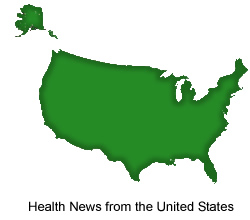
Date Published: 26 September 2006
Researchers set benchmarks for screening mammography

A recent study of medical audit data funded by the National Cancer Institute (NCI), USA, revealed that community mammography screening results surpass performance recommendations across the United States.
Approximately 188 mammography facilities nationwide contributed to the study of more than 1.1 million women, who underwent at least one screening mammography exam between 1996 and 2002. The findings are reported in the October issue of Radiology.
" With a cancer detection rate of 4.8 per 1,000 women, our results show that most radiologists who are reading mammograms are performing well," said Robert D. Rosenberg, M.D., lead researcher and professor of radiology at the University of New Mexico in Albuquerque.
" Mammography, combined with better breast cancer treatments, appears to be helping to decrease the number of deaths from breast cancer."
Up until now, there has been no national measurement for radiologists to compare their individual cancer detection rates against.
" There have been no data available for mammographers in the United States to give context to anyone's individual performance results. All prior guidelines were best guesses from a panel of experienced radiologists," Dr. Rosenberg explained.
In the study, data were collected from six NCI-funded research sites, for a total of nearly 2.6 million screening exams assessed by 807 radiologists. Each radiologist's assessment, along with every woman's outcome within 12 months of the initial screening exam, were tallied. The radiologists included in the analysis came from urban, rural, large and small practices of different organizational structures, across broad geographic areas.
Approximately 10% of mammograms yielded abnormal findings, for a recall rate of 9.8%.
" We found that radiologists are much more likely to err on the side of caution, for a higher recall rate," said co-author Bonnie Yankaskas, Ph.D., professor of radiology at the University of North Carolina at Chapel Hill.
After additional imaging work-up, cancer was ultimately diagnosed in 4.8 of 1,000 women. When a radiologist identified significantly abnormal findings and advised that biopsy be performed immediately, 34% of biopsy results yielded cancer.
The majority of women examined were 40 to 70 years old. Of all reported cancers, 21.6% proved to be ductal carcinoma in situ, and 78.4% were invasive cancers. Of invasive cancers, 37.2% were small tumors measuring 10 millimeters or less in diameter, 41.6% were mid-sized tumors measuring 11 to 20 millimeters, and 21.2% were large invasive tumors measuring 2 centimeters and larger.
The authors hope that their findings will allow radiologists to evaluate and improve the accuracy of their individual cancer detection rates when reading mammograms.
" Recalls and additional biopsies do add to the cost and anxiety of mammography," said Dr. Rosenberg. "However, we are continually working to improve the test from both ends?finding cancers while minimizing unnecessary work-ups."
The data collected for this study were gathered by the Breast Cancer Surveillance Consortium, an initiative funded by the NCI.
Source:  The
Radiological Society of North America (RSNA)
The
Radiological Society of North America (RSNA)
http://www.rsna.org
![]()


